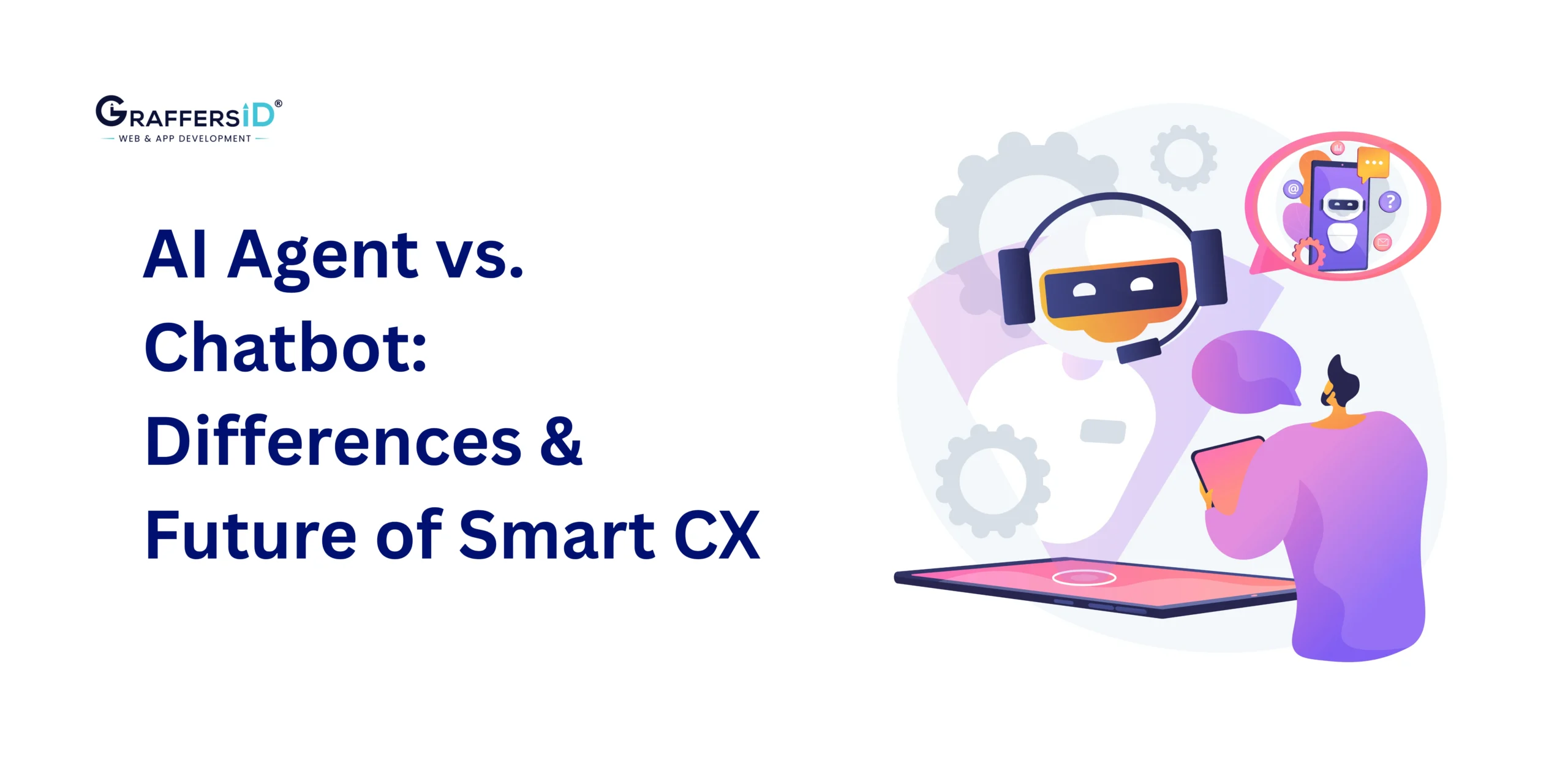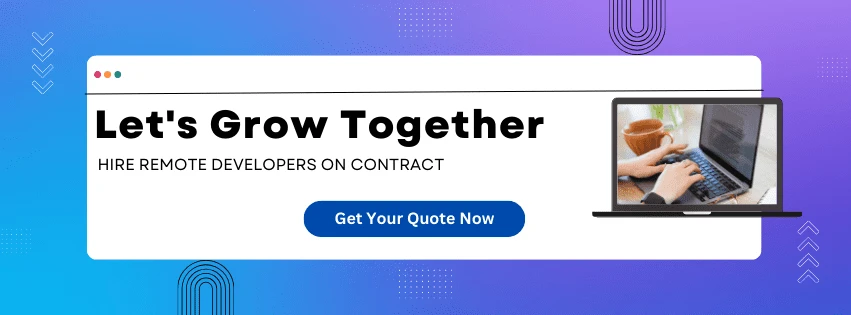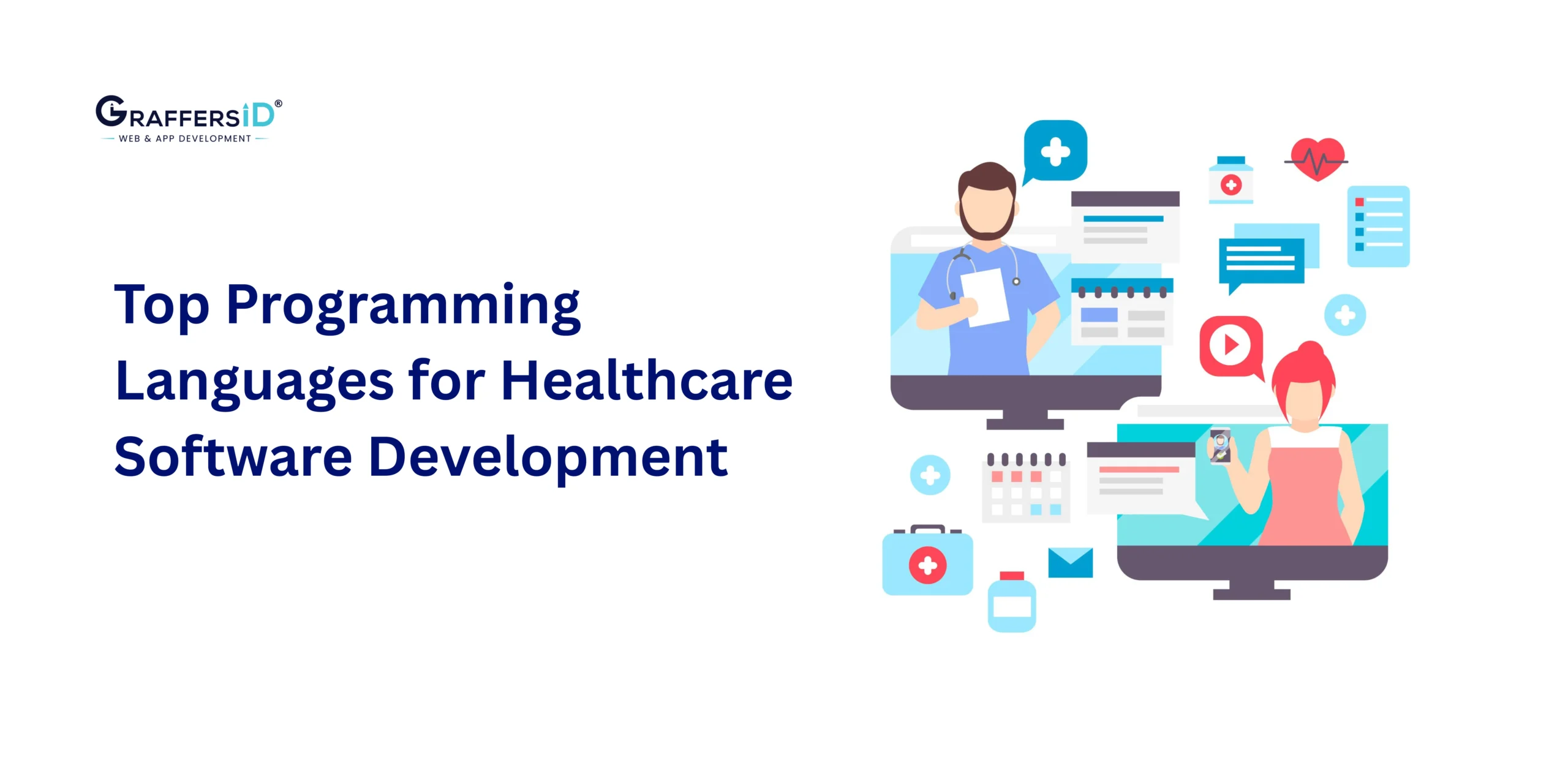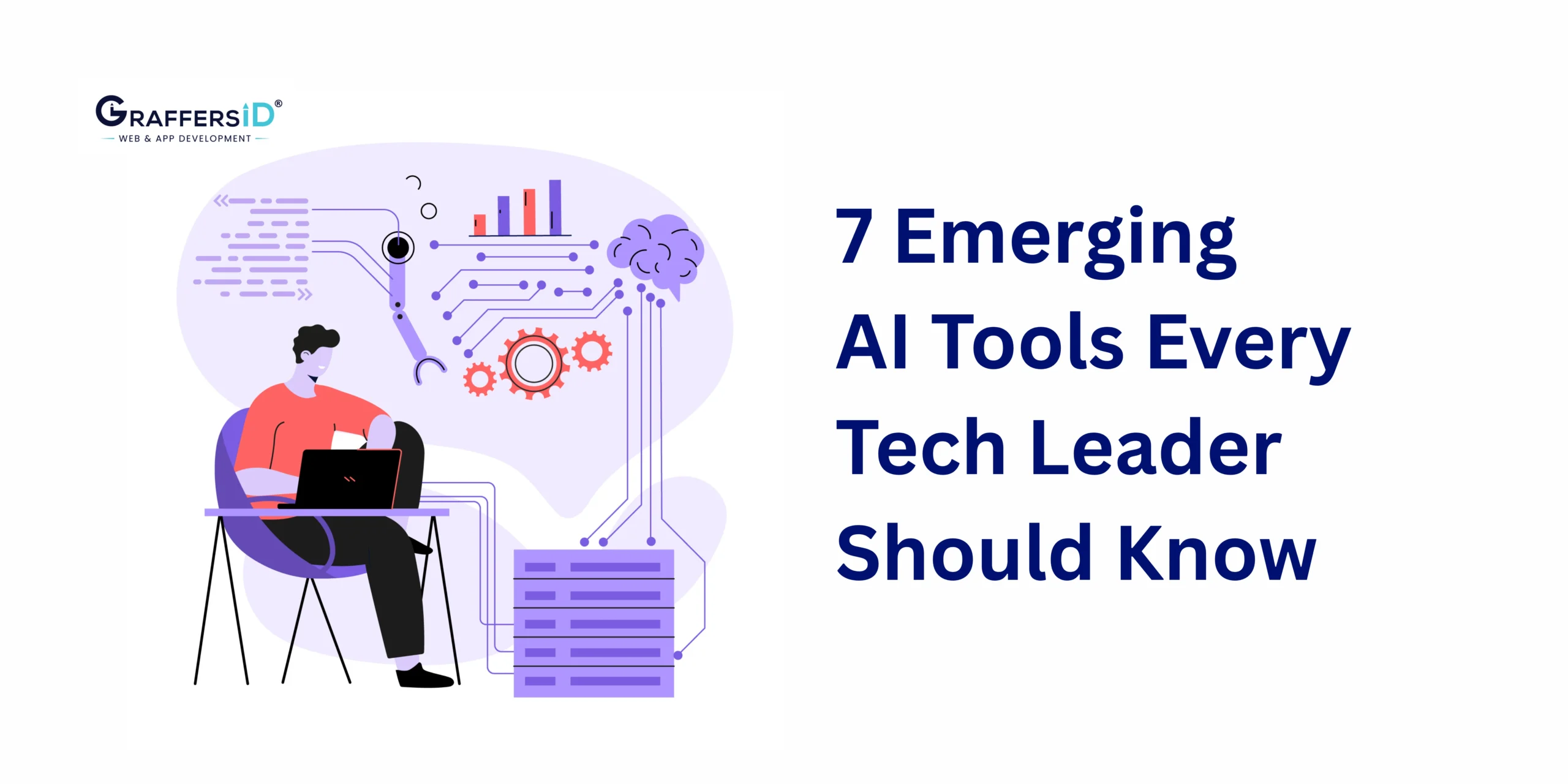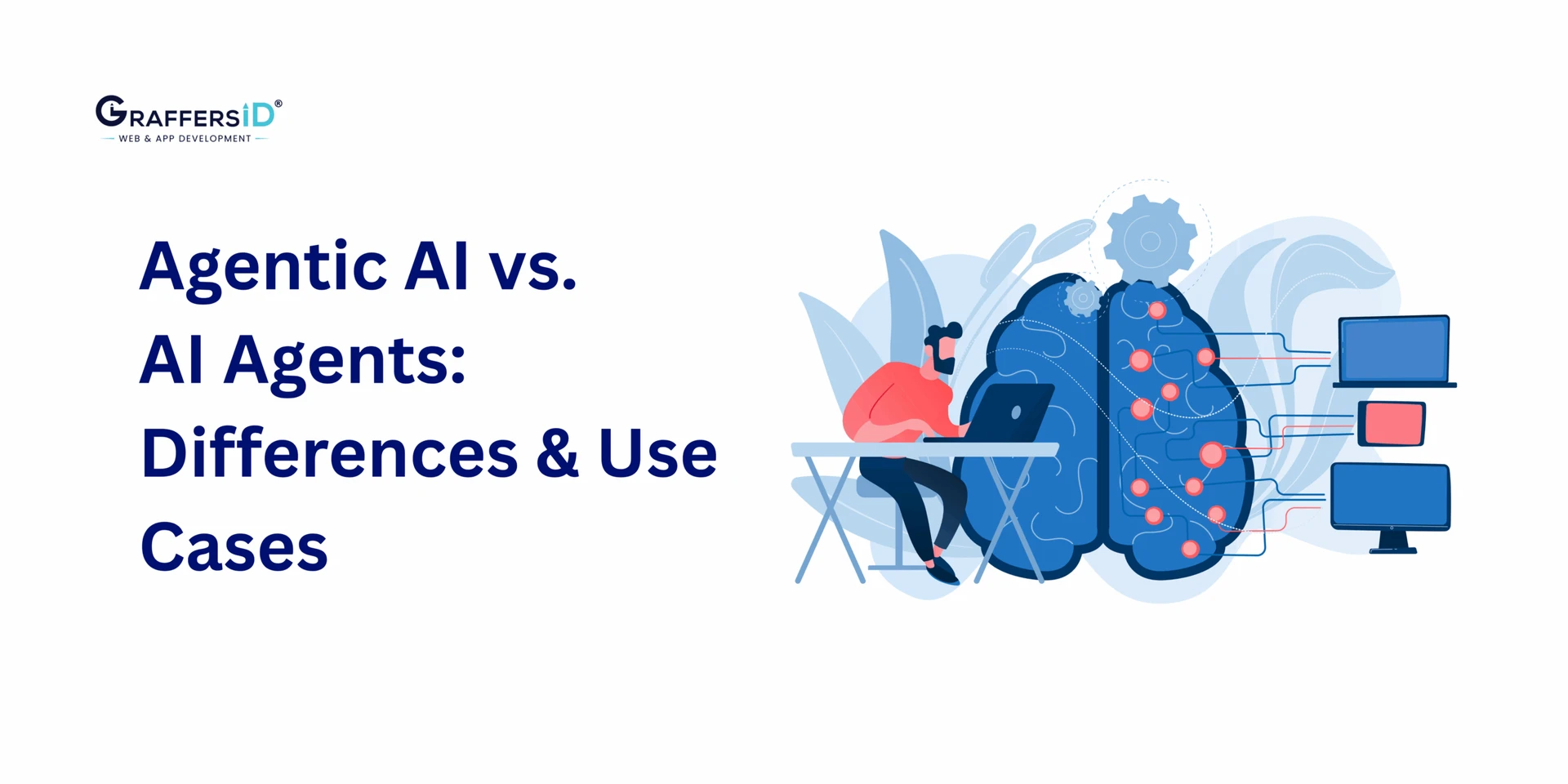In 2026, customer expectations have evolved faster than ever. Simply answering questions is no longer enough; users demand instant, intelligent, and personalized interactions across multiple channels. Businesses that relied on traditional chatbots now face a harsh reality: rule-based scripts can’t keep up with complex queries, dynamic workflows, or the need for human-like understanding.
Enter AI agents, the next-generation solution designed to deliver autonomous, context-aware, and multi-step problem-solving capabilities. Unlike chatbots, these smart systems can remember past interactions, anticipate user needs, and continuously improve over time.
In this blog, we break down the key differences between chatbots and AI agents, explore their capabilities, limitations, and real-world use cases, and help you decide which technology can transform your customer experience in 2026.
What is a Chatbot?
Chatbots are the first generation of automated customer engagement tools. These digital assistants simulate human-like conversations via text or voice, but they rely on predetermined scripts and rule-based workflows.
How Do Chatbots Work?
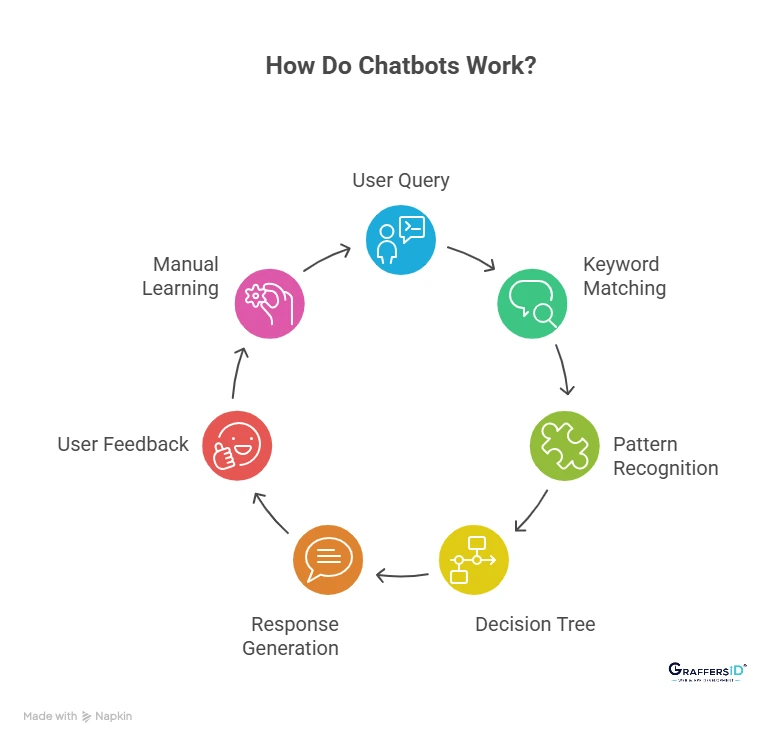
-
Keyword matching: Detects specific words in user queries and triggers pre-written responses.
-
Pattern matching: Recognizes sentence structures, but with limited flexibility.
-
Decision trees: Follows a structured flow to guide users through predefined conversation paths.
Common Use Cases of Chatbots in 2026
-
Customer service FAQs and basic support
-
Lead qualification and information collection
-
Routine troubleshooting
Limitations of Chatbots
-
Limited adaptability: Struggle with queries outside their programmed scripts.
-
Poor context retention: Forgets past interactions, requiring users to repeat information.
-
Manual learning: Requires human intervention to update and improve.
While chatbots are cost-effective and efficient for predictable tasks, their stateless nature and limited intelligence make them less suitable for delivering the personalized, real-time experiences customers expect in 2026.
What is an AI Agent?
AI agents represent the next evolution of conversational AI: autonomous, intelligent systems capable of decision-making, multi-step task execution, and continuous learning. Unlike traditional chatbots, AI agents leverage advanced AI technologies such as:
-
Large Language Models (LLMs) and Generative AI for understanding and generating natural language.
-
Contextual embeddings to interpret nuanced conversations.
-
Machine learning to continuously adapt and improve responses.
Key Features of AI Agents in 2026
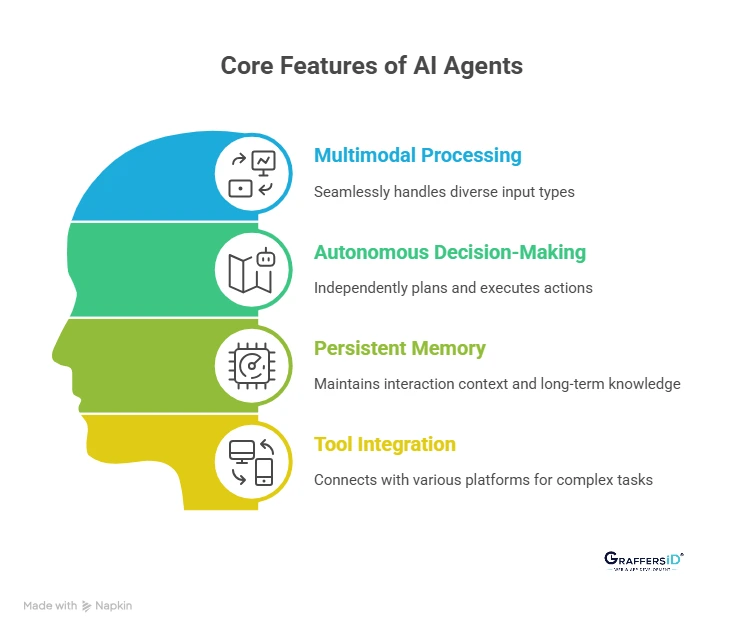
-
Multimodal processing: Handle text, voice, video, and audio inputs smoothly.
-
Autonomous decision-making: Independently plan and execute actions without human guidance.
-
Persistent memory: Maintain both short-term interaction context and long-term knowledge for personalization.
-
Tool integration: Connect with APIs, databases, and SaaS platforms to perform complex tasks.
AI agents in 2026 deliver context-aware, proactive, and personalized interactions, making them ideal for businesses seeking to enhance customer satisfaction, reduce operational friction, and stay ahead in a competitive market.
AI Agent vs. Chatbot: Key Differences (2026)
| Feature | Traditional Chatbots | AI Agents |
|---|---|---|
| Architecture | Rule-based decision trees & basic NLP | Large Language Models (LLMs), Generative AI, tool integration, planning engines |
| Memory & Context | Stateless; no memory across sessions | Stateful; maintains short-term context & long-term knowledge for personalization |
| Decision-Making | Reactive; follows predefined scripts | Proactive; autonomous, anticipates user needs, and plans actions |
| Learning & Adaptability | Manual updates required | Continuous adaptive learning via ML and real-time interaction data |
| Integration & Connectivity | Basic APIs and webhooks | Advanced APIs, multi-tool orchestration, middleware, SaaS platform integration |
| Personalization & User Experience | Generic, one-size-fits-all responses | Context-aware, hyper-personalized, tailored to user behavior and preferences |
| Use Case Complexity | Handles simple, predictable queries | Capable of complex, multi-step workflows and problem-solving |
| Implementation Time | 2–8 weeks for setup | Rapid coaching-based configuration; minimal technical barriers |
| Cost & Investment | $300–$10,000+/month | $200,000–$1,000,000+ first year, high ROI potential |
How AI Agents and Chatbots Affect User Experience (UX) in 2026?
AI Chatbots:
-
Follow linear, scripted conversations that can feel rigid.
-
Use a generic tone with limited awareness of user emotions.
-
Provide disjointed support across channels, requiring users to repeat information.
AI Agents:
-
Offer dynamic, context-aware conversations that adapt to user needs.
-
Detect sentiment and modulate tone to communicate empathy and understanding.
-
Deliver smooth omnichannel experiences, remembering interactions across platforms.
Read More: What is a ReAct Agent? How Reasoning-Based AI Agents Drive Smarter Workflows in 2026?
Impact on Customers: AI Agent vs. Chatbot
AI agents create experiences where users feel understood, valued, and supported, driving higher engagement, improved satisfaction, and stronger loyalty.
Implementation, Costs, and Risks: AI Agent vs. Chatbot in 2026
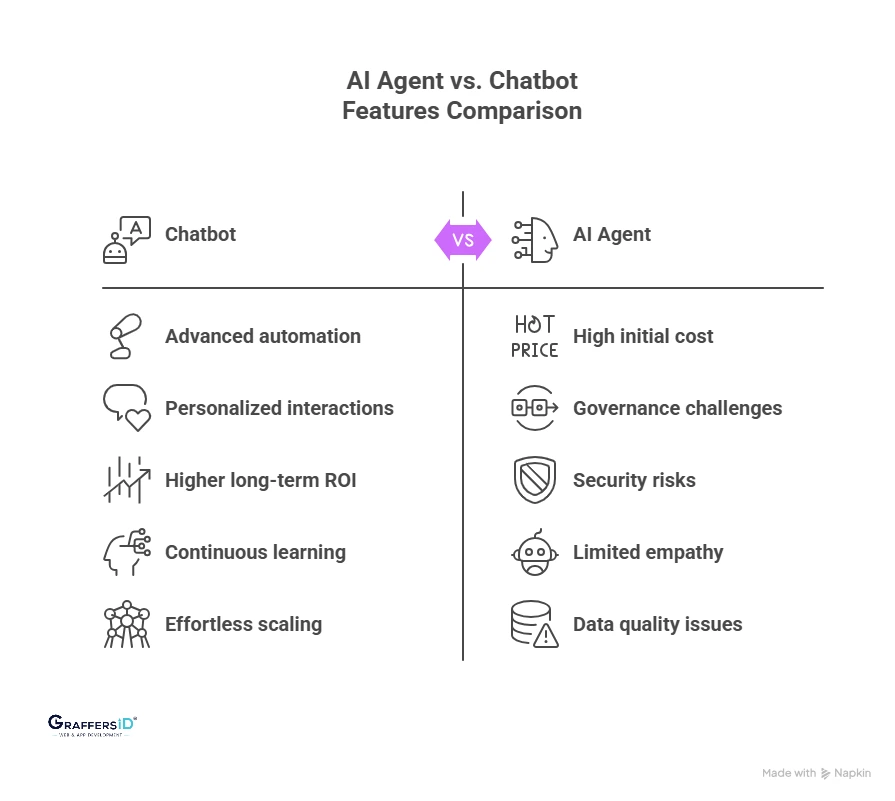
1. Implementation and Maintenance
-
Chatbots: Require manual scripting, frequent updates, and dedicated staff to monitor performance. Scaling to multiple channels can be time-consuming and costly.
-
AI Agents: Offer coaching-based setup, automatically sync with knowledge bases, learn continuously, and scale effortlessly across systems, reducing ongoing maintenance overhead.
2. ROI Considerations
-
Chatbots: Low-cost and effective for simple, predictable queries but limited in capability and long-term value.
-
AI Agents: Higher initial investment but deliver advanced automation, personalized interactions, and measurable efficiency gains, resulting in higher long-term ROI.
3. Risks & Governance
-
Chatbots: Can frustrate users due to poor data quality and limited empathy; interactions may feel rigid or repetitive.
-
AI Agents: Require robust governance, ethical AI policies, and continuous monitoring to manage autonomous decision-making. Security is critical; agents need advanced protection against adversarial prompts, system-level attacks, and misuse of sensitive data.
Why This Matters in 2026?
With customer expectations rising, businesses need AI systems that deliver smooth, personalized, and secure experiences. Choosing the right solution, chatbot or AI agent, directly impacts customer satisfaction, operational efficiency, and competitive advantage.
How to Choose the Right Solution in 2026? AI Agent vs. Chatbot
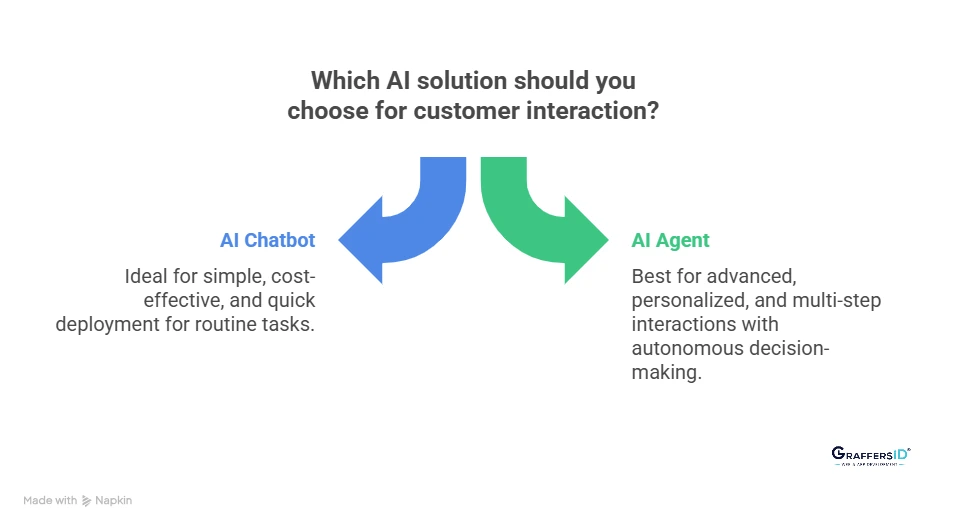
When to Choose an AI Chatbot?
Chatbots remain a cost-effective solution for simple, predictable interactions. They are ideal if your business:
-
Handles routine customer inquiries like FAQs, order status, or basic troubleshooting.
-
Needs quick deployment without heavy technical investment.
-
Wants to automate repetitive tasks to reduce support costs.
When to Choose an AI Agent?
AI agents are best for businesses requiring advanced, personalized, and multi-step interactions. Choose an AI agent if you:
-
Need context-aware, hyper-personalized support that remembers user interactions across sessions.
-
Want autonomous decision-making, proactive recommendations, and complex task execution.
-
Handle workflows that span multiple tools, APIs, or platforms.
-
Aim to improve continuously through adaptive learning from real-time interactions.
Conclusion: Choosing the Right Conversational AI for 2026
The evolution from chatbots to AI agents reflects a broader shift in customer expectations: users no longer settle for scripted replies, they demand speed, accuracy, empathy, and personalized solutions.
While traditional chatbots still serve predictable, low-complexity tasks, AI agents deliver autonomous, context-aware, and multi-step problem-solving capabilities that truly elevate customer experiences.
By understanding the core differences, businesses can make informed choices about which technology aligns with their goals. AI agents not only reduce operational costs over time but also increase engagement, loyalty, and competitive advantage in an era where customer experience defines market leadership.
For organizations ready to future-proof their customer support and digital interactions, implementing AI agents is no longer optional; it’s essential.
At GraffersID, our team of expert AI developers and solution architects can help you integrate cutting-edge AI agents into your workflows, delivering intelligent, personalized, and scalable automation that transforms the way you engage with customers.
Contact GraffersID today for future-proof AI solutions.
